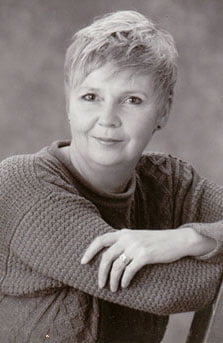#830 Sweeping rape under the rug
Girls Like Me
by Kristin Butcher
Victoria: Orca Books, 2019
$9.95 / 9781459820555
Reviewed by Carol Anne Shaw
Trigger warning: rape, sexual coercion, miscarriage
*
 Kristin Butcher of Campbell River has written more than twenty books for young people, and has been shortlisted for a variety of Canadian literary awards during her career. She writes regularly for the Orca Soundings Series of Orca Books — a series of short, high-interest novels written specifically for teens experiencing challenges with reading. These hugely popular books target modern-day issues, contain compelling characters, and feature storylines guaranteed to hold a reader’s interests from the very first word.
Kristin Butcher of Campbell River has written more than twenty books for young people, and has been shortlisted for a variety of Canadian literary awards during her career. She writes regularly for the Orca Soundings Series of Orca Books — a series of short, high-interest novels written specifically for teens experiencing challenges with reading. These hugely popular books target modern-day issues, contain compelling characters, and feature storylines guaranteed to hold a reader’s interests from the very first word.
Butcher’s latest, Girls Like Me, is one such book, but fasten your seatbelt; it’s not for the faint of heart.
When sixteen-year-old Emma Kennedy accepts a ride from her high school crush, Ross Schroeder, he doesn’t drive her home. Instead, he pulls down a desolate road and rapes her. But the popular boy tells everyone who will listen that Emma wanted it, and she immediately becomes a victim of slut-shaming. Even her best friend, Jen, has trouble believing Emma’s story. And in her mind, Emma should never have gone out with him in the first place; he was Jen’s crush! As far as Jen is concerned, her longstanding friendship with Emma is over.
The book opens with an adrenaline-inducing scene of Emma being rushed to the hospital. Our protagonist wavers in and out of consciousness, having suffered dangerous blood loss from a complication of the pregnancy caused by her rape six weeks earlier.

Not only is Emma continuously haunted and traumatized by memories of the assault, now she has to deal with a sudden miscarriage and the ever-growing rumours spreading at school.
It becomes clear very early on in the novel that Emma is virtually on her own. Her conservative mother seems unable to process the horror her daughter has endured, and Emma’s bumbling father is kept “appropriately” in the dark. All he knows is that his daughter has had a little bout of “women’s troubles.” Yes, it’s that kind of a family: at the first sign of trouble or discomfort, things are swept quickly and quietly under the proverbial rug. Take, for example, this passage at the end of the novel’s first chapter:
“You need to talk to the doctor,” my mother says.
Why? I almost blurt. What’s there to talk about?
I was pregnant, and now I’m not. I don’t even want to think about it, never mind talk about it. Nobody was supposed to find out. But now Dr. Abernathy knows, and so does my mother — even though she hasn’t come right out and said anything.
I squeeze my eyes shut and wish myself anywhere but where I am.
When I open them again, I’m still sitting on my bed, and my mother is still watching me.
“Supper’s getting cold,” she says and heads back to the kitchen.

Emma is carrying a very heavy burden of fear and shame. Her mother does nothing to remedy this; in fact, her stone-cold treatment of Emma’s “troubles” just reinforces the fact that this sort of thing is ugly and uncomfortable; something “good” families do not discuss.
Emma’s days at school are just as bad. Her peers have branded her a slut, and to make matters worse, Ross is treating this whole thing as though it is some sort of game. He taunts Emma, and almost gleefully reminds her that if she were to go to the police, it would be a complete waste of her time. No one would believe her. And he’s right. People, as Emma learns, are going to believe what they want to believe.
Why won’t it all just go away? Why can’t life just go back to the way it was before that awful night six weeks ago when she accepted a ride home from Ross?
But buried trauma doesn’t disappear; it simmers, and sooner or later it bubbles up to the surface to rear its ugly head. For Emma, that moment happens when Ross begins showing interest in Jen. And while the girls’ friendship is damaged, Emma knows she must find a way to make Jen understand that Ross is dangerous; a monster, someone who must be stopped before it’s too late.
Girls Like Me demonstrates that while “we may have come a long way, baby; we haven’t come far enough.” Butcher writes about rape culture brutally and truthfully, showing that, despite their best efforts, women continue to be victimized over and over again. What I especially appreciate about the novel is the way Kristin Butcher shows how archaic and damaging attitudes continue to prevail among males and females alike. The women in Emma’s life, including her so-called best friend and her mother, are no better than the men: they are quick to believe the worst about Emma. The males in her life are either ignorant, flippant, or entirely blasé.
Kristin Butcher has written a heart-wrenching and thought-provoking story about an innocent girl who has lost everything: the safe and solid foundation of home, the trust and love of a cherished friend, and most importantly, her feelings of self-worth. Shame plays a role here. It shouldn’t, but it does, and Emma, like so many other victims of rape, grows small, retreating inside of herself. She knows if she goes to the police, her world will explode; that she’ll be interrogated and publicly shamed, and that everyone will know the sordid details of what she’s tried so hard to forget.
And while my heart broke for Emma, I held out hope that justice would prevail by the end of the story. I was not disappointed. For when Emma discovers Ross has violated her friend, her debilitating fear is suddenly replaced by healthy anger and a need for justice. In an act of courage, Emma is finally able to step into her power and begin the process of putting the pieces of her life back together.

My only issue with the story is the way rape is described on more than one occasion as “having sex.” Rape has little to do with sex and everything to do with power. It isn’t a sexual act; it’s a violent one.
Girls Like Me isn’t a pretty book, but it’s an important one. Tackling such a complex and serious issue in such a short novel format is challenging, but Kristin Butcher does a wonderful job of it. Her story is clear, concise, sensitive, and informative. Emma’s character feels authentic to me and I’m sure her teenage insecurities and internal struggles will resonate with readers.
Perhaps the most important thing about this novel is that it can open up the floor for necessary discussion with young men and women alike. In the #MeToo climate in which we live, we can only hope that books such as Girls Like Me find their way into the hands of young readers everywhere. Understanding how the system works when a woman is raped, and familiarizing ourselves with old and damaging attitudes, can be a real catalyst for change. Knowledge, after all, is power.
I’m not sure I “enjoyed” Girls Like Me, but there’s no question in my mind that Kristin Butcher deserves a big high-five for this one.
*

Carol Anne Shaw lives and writes in the Cowichan Valley on Vancouver Island. She is the author of the award-winning Hannah series, published in Vancouver by Ronsdale Press, and is an on-again-off-again part-time visual arts instructor at a local high school at Shawnigan Lake. When she isn’t writing, she is editing other people’s writing — young adult fiction being her specialty — or she is painting at her easel. She is particularly fond of mentoring young writers and helping them discover their own unique voice. A big lover of the outdoors, Carol Anne is no stranger to the myriad of forest trails that surround her home, a passion she shares with her (coffee-making) husband and their dog, Gordie.
*
The Ormsby Review. More Books. More Reviews. More Often.
Publisher and Editor: Richard Mackie
The Ormsby Review is a journal service for in-depth coverage of B.C. books and authors. The Advisory Board consists of Jean Barman, Robin Fisher, Cole Harris, Wade Davis, Hugh Johnston, Patricia Roy, David Stouck, and Graeme Wynn. Scholarly Patron: SFU Graduate Liberal Studies. Honorary Patron: Yosef Wosk. Provincial Government Patron since September 2018: Creative BC
“Only connect.” – E.M. Forster
One comment on “#830 Sweeping rape under the rug”
Wow, Carol Anne! Thanks so much for this review. It’s such a relief to know someone ‘gets’ it. Validation for sure.